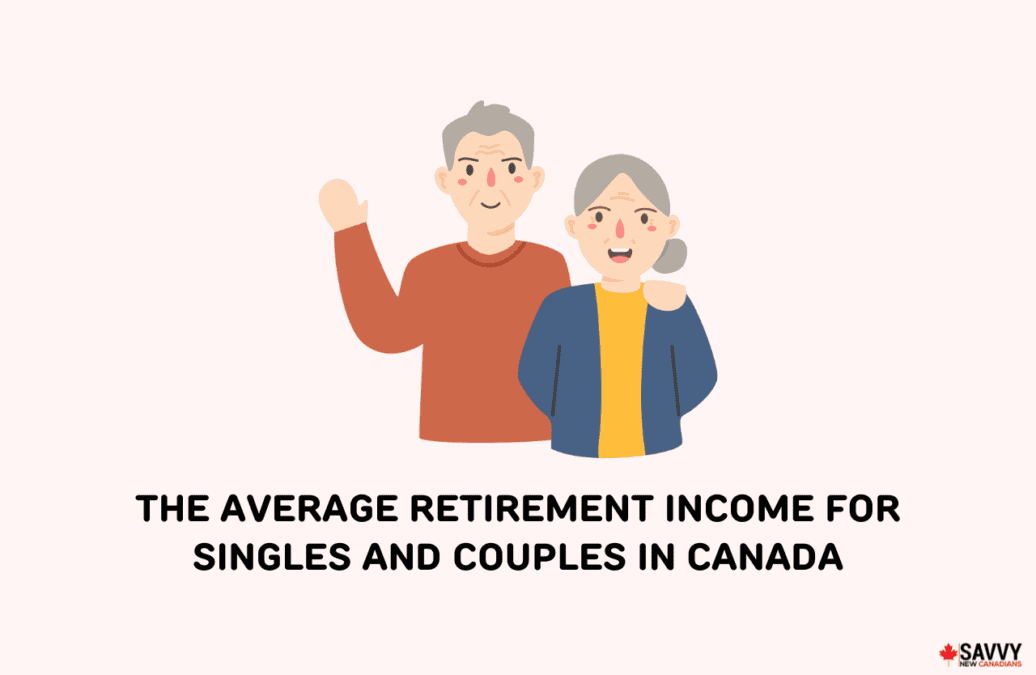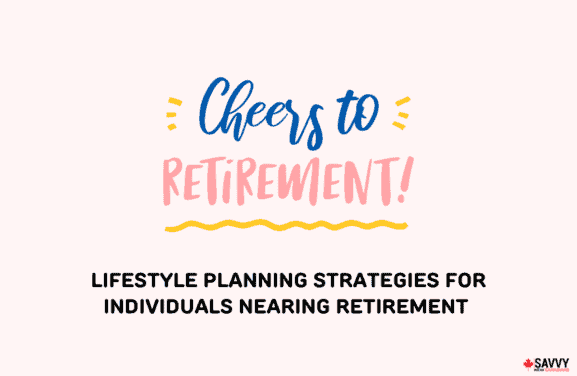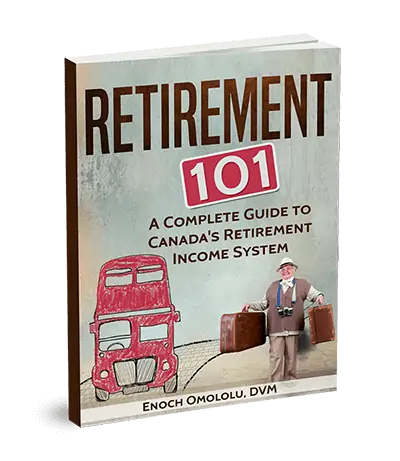Having a retirement income is crucial in living comfortably and stress-free during your golden years.
In Canada, seniors who live alone have a median income of $33,600 annually, and those living with a partner earn about $74,200 per year.
This article covers the average retirement income in Canada for singles and couples, including the different ways seniors can earn money.
Key Takeaways
- The median income for seniors who live alone is $33,600 annually, and for those living with their spouse, it is $74,200.
- Apart from government benefits and pensions such as OAS, GIS and CPP, seniors can fund their retirement through their employer pension plans, investments, and other retirement savings.
What is the Average Canadian Retirement Income?
The latest Canadian Income Survey, released in 2024 and using data from 2022, shows that seniors who live alone have an income of approximately $33,600 annually.
Technically, this is the “median income,” not the “average income.”
Statistics Canada often uses the median income instead of the average. Many times, it better represents the typical earnings of families, as it isn’t skewed by a few high-income earners.
Average Monthly Retirement Income in Canada
Based on the same data sets used earlier, the median monthly retirement income for seniors living independently is estimated to be $2,800.
This is an increase of less than $10 from the previous year’s (2021) typical monthly income of $2,792.
Average Upper-Middle-Class Retirement Income in Canada
There are no reliable sources that specify exactly how much the upper-middle-class retirement income in Canada is.
However, we can at least estimate that the number would be approximately just under $95,000.
Non-senior families typically earn $109,500, whereas senior families earn approximately $74,200 in 2024. That’s a decrease of about 32.2% in income.
Applying a similar ratio to the average household income of $140,000 of people who identify as upper middle class, it’s safe to estimate that the upper-middle-class retirement income is around $95,000 for couples.
Average Couple Retirement Income in Canada
The median couple’s retirement income in Canada is about $74,200 annually. This translates to approximately $6,183 per month.
How to Have an Income as a Retiree in Canada
Listed below are multiple ways to earn money as a retiree in Canada.
Government Benefits
OAS
Old Age Security is a monthly benefit paid to seniors 65 years old or older who reside in Canada as citizens or legal residents. No contributions or employment history are required prior to receiving this benefit.
Any senior can receive OAS, provided that they’ve lived in Canada for at least 10 years since they were 18 years old.
To receive the full monthly OAS pension, which is $713.34 for those aged 65 to 74 years old and $784.67 for those who are older, you must’ve lived in Canada for 40 years of your adulthood.
If you’ve spent less than 40 years but resided in the country for more than 10 years, you’ll receive partial benefits proportionate to the number of years you’ve lived in Canada.
GIS
The Guaranteed Income Supplement (GIS) is also part of the OAS program. It’s a non-taxable supplementary benefit to Old Age Security pensioners with low income. To be eligible, your income must be below the specified threshold for your household composition.
Single seniors must earn less than $21,624 to be eligible for GIS payments of up to $1,065.47 per month.
CPP
The Canada Pension Plan is a taxable monthly benefit given to seniors who have made at least one valid contribution to the CPP.
The amount you’ll receive from CPP depends on factors such as the age at which you started your pension, how much you’ve already contributed to this plan, and your average income during your working years.
In 2024, the maximum benefit one can receive at age 65 from CPP is $1,364.60 per month.

Employer Pension Plan
Employer Pension Plans, or EPP, are savings plans that can also serve as your source of income during your retirement years. Once you and your employer, or solely your employer, contribute money to the plan, which is then invested in financial products, you’ll receive a lump sum when you retire.
The amount you’ll receive from Employer Pension Plans depends on how much you’ve contributed and how your investments performed. If you leave a job that offered an EPP, you may transfer it to another EPP or leave it there until you retire.
Investments
Seniors who currently invest money or have invested during their working years can also generate income from their investments. Some of the most common investment types in Canada include stocks, bonds and ETFs.
If you’re interested in starting your investment journey to prepare for your retirement, I’ve created a simple yet effective DIY investing course perfect for beginners.
Learn the basics of investing, watch step-by-step lesson videos to learn the trade, and avoid hefty investing fees to maximize your earnings.
Passive Income
Many seniors also earn from passive incomes they have established throughout the years. Popular side hustles that can help retired individuals earn passively include creating eCommerce stores, renting out properties and buying a hands-off business.
Retirement Savings
If you’ve established a retirement savings plan or RRSP, which invests your contributions to further grow your money, you have three options for receiving income in retirement.
You can cash out your savings in one go, transfer the funds into a registered retirement income fund (RRIF), or purchase an annuity.
Each option allows you to receive a steady income stream.
What is the average net worth of a 65-year-old Canadian?
According to the latest net worth by age data, seniors aged 65 years old or older in Canada have a median net worth of $543,200. In comparison, those who are aged 55 to 64 years old, nearing their senior years, have a median net worth of $690,000.
Is $600,000 enough to retire in Canada?
It depends. However, there’s a rule of thumb that suggests your savings for retirement should be at least your annual income just before retirement multiplied by a number between 10 and 14.
If you’re earning $100,000 annually before retirement, you’ll likely need at least a million to retire comfortably.





